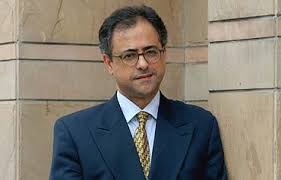A delegation of 10 Executive Directors from the World Bank Group (WBG) has described as encouraging Nigeria’s recovery from recession and her recent growth trend.
The World Bank top shots visited Nigeria, from May 9 to 12, 2018 to get a better understanding of the country’s development priorities with a special focus on the energy sector.
The Executive Directors held discussions with the Vice President of Nigeria, the Minister of Finance, Executive Governors of Adamawa, Bauchi, Borno, Gombe, Edo, Lagos, Taraba and Yobe, other senior government officials at the federal and state level. They discussed the security challenges in the North East and Middle Belt region and how to achieve development in this challenging environment.
The Breton Woods institution’s leaders also met with beneficiaries (including from the North East) of the WBG supported projects program in agriculture, education, health, youth employment, community development, soil erosion and public financial management; as well as representatives of the private sector,civil society organizations, diplomatic missions and development partners.
During their visit to the country, they also commissioned Azura-Edo Power Plant in Benin City, which is a key project in the government’s power sector reform agenda. The project is supported by three arms of the World Bank Group namely, the International Finance Corporation (IFC), Multilateral Investment Guarantee Agency (MIGA) and the World Bank.
In Lagos, the delegation also visited microfinance clients, mostly women, to gain an understanding in how the funds they receive impact their livelihoods; and they had an interactive meeting with private sector executives, which highlighted the need to sustain business reforms and provide affordable and reliable power to improve the living standards of all Nigerians and ensure that the private sector can play its role in job creation and inclusive growth.
Commenting on the team’s findings on the nation’s economy, the delegation’s spokesperson and Executive Director for Italy, Albania, Greece, Malta, Portugal, San Marino and Timor-Leste, Patrizio Pagano, said that the team’s “visit to Nigeria is to help us get a better understanding of the country context, assess the World Bank’s interventions on the ground, and support opportunities that will keep the country on a path of sustained development.
“We commend Nigeria’s implementation of its new Economic Growth and Recovery Plan (EGRP) and the Power Sector Recovery Plan (PSRP) both of which are important for regional integration to ensure trade and capital flows, which will ultimately lead to greater growth”, Pagano added.
The Executive Directors observed that Nigeria continued to implement institutional policy reforms for restoring macroeconomic resilience and growth across sectors with support from the World Bank Group.
This is even as they reiterated the World Bank Group’s commitment to supporting Nigeria’s growth in a way that is inclusive, job enhancing, and reduces poverty and inequality., noting that “critical to this inclusive growth objective is reforming the power sector, boosting critical investments in human development, and mobilizing finance for development by creating a conducive environment for private sector participation.”
They emphasized the importance of the country to the sub-region and therefore the country’s central role in the WBG’s regional strategy for Sub-Saharan Africa.
Specifically, the Directors noted that Nigeria had been one of IFC’s fastest growing portfolios and represented IFC’s fifth largest global country exposure, with a committed volume of US$1.6 billion.
Nigeria is MIGA’s fifth largest country exposure in Sub-Saharan Africa, with $334 million in current exposure. The Nigeria Country Partnership Strategy extending to FY19 has an investment of $8.8 billion through the International Development Association (IDA) and International Bank for Reconstruction and Development (IBRD).






